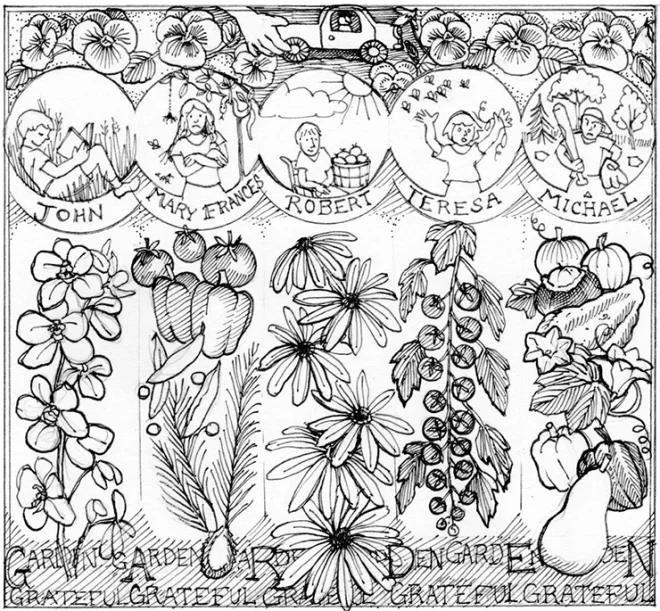My first gardening experience was a memorable moment in my life. It took place when I was five years old. With reckless abandon, I took a hoe and made a smooth and inviting road for my toy truck—right through my mother’s pansy bed. It was memorable because when she saw what I had done, she instantly introduced me to the no-no’s of gardening and to useful garden work: weeding, cultivating, planting, and transplanting.
Years later, when our own children appeared on the scene, my wife, Mary, and I were sure they would inherit our own love for gardening. That was in the late 1940s and early 1950s, when GIs of World War II were returning home (to California in my case), and like many others I was planting, digging, harvesting, and enjoying the half acre we bought in the suburbs—our first home.
We put in a lawn in front and back for the kids to play on. Elsewhere we planted a big garden, two peach trees, an apricot tree, grapes, blackberry bushes, a vegetable garden, flower beds, and shrubs.
With a magnificent disregard for reality, we expected the kids would take an interest in gardening and gladly hoe, weed, plant, and gather. (This was before malls, the internet, 24-hour TV, video games, cell phones, iPods, tablets—I don’t how anybody gets a kid interested in gardening today.) We suggested, we ordered and commanded, we cajoled and rewarded, and we praised the produce that filled the dinner table. We reveled in the beauty and smell of the freshly mowed lawn, the rose bed in full flower, and the ripening grapes hanging from the vines—all as sights of enduring pleasure and beauty to be remembered forever.

It didn’t work. Not one whit.
Eldest son John was found one day curled up reading a book, hidden in the weeds he was supposed to be removing. Oldest daughter Mary Frances complained nonstop that there were bugs, spiders, and “tree-climbing” snakes lurking about in the garden.
Youngest daughter Teresa, commissioned to pick black-eyed peas, raced back into the kitchen declaring she’d never go out there again: There were yellow jackets all around and they might bite her. Youngest son Michael complained bitterly about the trees blocking his field when he was kicking the football or playing catch with the baseball—and about the vegetable garden taking up too much space. Middle son Robert, handicapped with cerebral palsy, enjoyed having his picture taken with a basket of ripe tomatoes, but he wasn’t into picking them himself.
So we gave up trying to make gardeners out of those wonderful children. We loved them dearly from birth through first grade and high school, from first date to prom, from college to jobs, to marrying and having kids of their own. As they became adults, we had to enjoy them from a distance, since they had all moved to other cities. Their letters and phone calls made us smile and sometimes cry.
Then, one day years later, as we finished reading a letter from Teresa asking about the suitability of a small pine tree she and her husband had planted, a thunderous thought hit us:
These kids are all gardeners!
John, in rainy Seattle, regularly started seeds in the winter under lights, grew orchids, and asked for advice about good short-season tomatoes. Mary Frances in coastal California had a garden with fruit trees, several varieties of peppers, tomatoes, and sugar peas. She even asked if she might have a cycad from the pups I was starting.
Youngest son Michael, in Massachusetts, immediately dug up a portion of the back lawn at his new home for a vegetable garden, and was asking how to store winter squash. Even Robert, for whom gardening was physically difficult, had dug up a small plot in front of his handicapped apartment. He’d gratefully accepted some Gloriosa Daisy plants I had started.
And Teresa, who hated the yellow jackets in the garden, has had a tomato named for her by the family—the Teresa Tomato—a cherry tomato that showed up as a volunteer in her garden and turned out to be the sweetest and most prolific cherry tomato any of us has ever grown.
Now, as we tend our own garden and cherish the communications from these kids, we wonder how on earth this happened. What changed? How did they ever become gardeners?
We can’t even guess.
But we are grateful. ❖


 Previous
Previous

